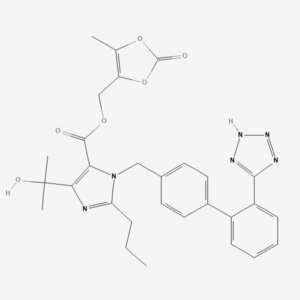Introduction:
The most commonly used medication “Clopidogrel” is used at excessive risk of cardiovascular disease. Heart stroke is a serious medical condition that can lead to disability or death, making it important to take steps to prevent its occurrence. In this article, we will discuss the role of platelets in heart stroke, the mechanism of action of Clopidogrel, its benefits and side effects, and precautions to take when using this medication.
What is Heart Stroke?
Heart stroke, also known as ischemic stroke, is a type of stroke that occurs when a blood vessel in the brain is blocked by a blood clot or plaque buildup. This blockage prevents blood and oxygen from reaching the brain, leading to damage and potentially permanent brain injury. Common causes of heart stroke include high blood pressure, diabetes, and smoking.
Role of Platelets in Heart Stroke:
Platelets are small blood cells that play a crucial role in blood clotting. When a blood vessel is damaged, platelets are activated and begin to clump together at the site of injury, forming a clot that helps to stop bleeding. However, in some cases, platelets can form clots that block blood flow in an artery, leading to heart stroke.
What is Clopidogrel?
Clopidogrel is an antiplatelet medication that works by inhibiting the activation and aggregation of platelets. It achieves this by blocking the ADP receptor on platelets, preventing them from sticking together and forming clots. Clopidogrel was first approved by the FDA in 1997 for the prevention of blood clots in people with cardiovascular disease.
Benefits of Clopidogrel:
Clopidogrel is highly effective at preventing heart stroke and reducing the risk of cardiovascular death and myocardial infarction (heart attack). In fact, studies have shown that the use of Clopidogrel in combination with aspirin can reduce the risk of heart stroke by up to 25% in people with a history of heart disease.
Usage of Clopidogrel:
Clopidogrel is indicated for use in people with a history of heart stroke, myocardial infarction, or peripheral arterial disease. It is also commonly used in combination with aspirin for the prevention of blood clots in people who have undergone certain types of heart surgery or stent placement. The recommended dose of Clopidogrel is 75mg once daily, taken with or without food.
Side Effects of Clopidogrel:
The usual side effects of Clopidogrel cover stomach ache, diarrhea, and headache. Serious side effects, while rare, can include bleeding, blood disorders, and allergic reactions. It is important to report any unusual symptoms or side effects to your healthcare provider immediately.
Precautions when using Clopidogrel:
Clopidogrel should be used with caution in people with a history of bleeding disorders or liver disease, as it can increase the risk of bleeding. It is important to inform your healthcare provider of any other medications or supplements you are taking, as they may interact with Clopidogrel and affect its effectiveness or increase the risk of side effects. Additionally, Clopidogrel should not be used in people who have a known allergy to the medication or its ingredients.
Conclusion:
In conclusion, Clopidogrel is an effective medication for the prevention of heart stroke and the reduction of cardiovascular death and myocardial infarction. However, as with all medications, it is important to understand the benefits and risks of using Clopidogrel and to consult with your healthcare provider before starting or stopping the medication. By working closely with your healthcare provider, you can help ensure the safe and effective use of Clopidogrel for the prevention of heart stroke.




